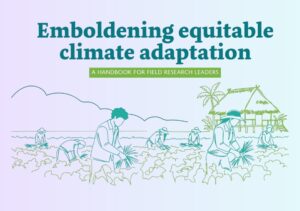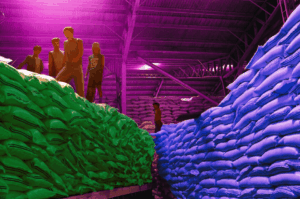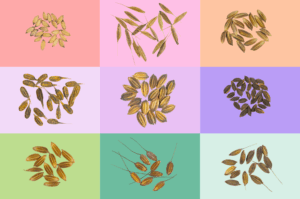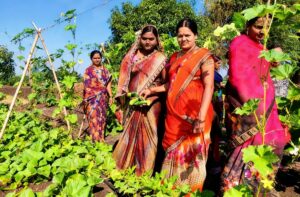Facing mounting evidence that climate change will fall hardest on agriculture-dependent regions like sub-Saharan Africa, a coalition of funders at the United Nations climate summit pledged $575 million today to deliver climate-smart solutions to farmers in low-income countries via the CGIAR global network of agricultural research partnerships.
Combined with the $256 million recently pledged at the Global Citizen Live event, and other commitments from Sweden and Belgium, CGIAR now has secured $863 million this year to confront a host of rapidly intensifying climate challenges that could upend the global fight against hunger and poverty.
CGIAR is the world’s largest public sector research partnership serving the needs of more than 500 million smallholder farmers who are responsible for feeding billions of people in Africa, Asia and Latin America. The effect of climate change on crops, fish and livestock is a key factor behind a steady rise in hunger that is eroding years of progress.
Read the full story at CGIAR
More on the impact of climate change on agriculture:
A woman overcomes the challenge of climate change with stress-tolerant rice
With her crop surviving nearly two weeks of submergence and recovering from an intense flood, Mrs. Devi had every reason to smile and be proud of her decision to plant a stress-tolerant rice variety. With her crop surviving nearly two weeks of submergence and recovering from such an intense flood, the BINA dhan-11 seeds were a true blessing for Mrs. Devi. Looking at the brightly colored grains of her harvest, she had every reason to smile and be proud of her decision to plant a stress-tolerant rice variety. She invited other farmers to visit her plot to see first-hand the incredible performance of BINA dhan-11 under flooded conditions.
How soil and climate-smart agriculture can fight climate change
The soil contains a vast reservoir of inorganic and organic carbons. However, because of natural processes and human activities, soils have lost a portion of these carbons as carbon dioxide gas, one of the greenhouse gases that contribute to climate change. Agricultural practices such as tillage, monocropping, removal of crop residue, excessive use of fertilizers and pesticides, and overgrazing disturb the soil and contribute to the process. This alteration in the atmosphere has affected many lives in general and agriculture in particular.
Climate change action plans for rice farming: from concepts to implementation
Despite a few setbacks, global climate agreements continue to tread on a positive path with more nations signifying official support for the Paris Agreement. However, although many countries are moving toward the implementation of concrete mitigation programs, there is a clear underrepresentation of the agricultural sector, especially in the rice-growing countries of Asia.
One possible mechanism to reach scale in implementing mitigation technologies is through Nationally Appropriate Mitigation Actions (NAMAs), one of the agreed outcomes from the Bali Action Plan concluded at the Conference of the Parties 18 in Doha, Qatar, in 2012.










